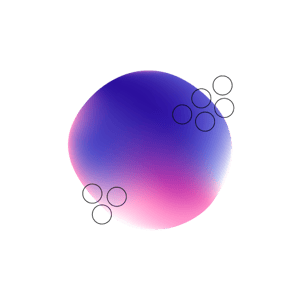Leverage a singular focus on iPSCs
Since the founding of Cellistic, our every effort has been directed toward a single goal: To develop the manufacturing platforms that can prime iPSC-based allogeneic cell therapies to cure complex conditions not just for “the one,” but also for “the many.”
As you read this, your team may be in the discovery phase and aiming to develop an iPSC-based allogeneic candidate. Or, alternatively, you may already have your process developed and need to transfer into a GMP facility for cell line development, Master Cell Bank (MCB), and drug product batch manufacturing.
Either way, Cellistic has a unique combination of expertise, experience, and capability in iPSC-based cell therapy to support you with both.
Partnering with Cellistic to advance your innovation
Our Pulse™ + Echo™ Platforms have been built to streamline success in cell line development and cell therapy manufacturing. Here are two examples of how our team could partner with yours as you pursue an iPSC-based allogeneic cell therapy.
MODEL 1
DNA Sequence Starting Point
Here is a scenario: You still need some optimization done on reprogramming, gene editing, and differentiation protocols, and want to leverage our knowledge and pre-developed solutions through the Pulse™+ Echo™ Platforms. Under this model, you would provide the sequences of choice (e.g., CAR/TCR) and, using our Pulse™ Platform, we would perform the required KI at the desired locus. We would then differentiate into the desired immune cells using our Echo™ platform, with the functionality of the cells being characterized with product- specific assays by our analytical team. How much support you would require based on your current process is entirely up to you.
MODEL 2
Protocol Transfer Starting Point
Here, let’s assume you already have your established process, but need a process development, manufacturing and quality team for cell line development, MCB, and drug product batch manufacturing. In this scenario, we would transfer in your process, enabling you to benefit from collaborating with a team purely focused on iPSCs and one with a special knowledge of the distinct challenges and pitfalls inherent in iPSC-based cell therapy manufacturing.

WHY IPSCS
A technology primed for repeatable success
We believe current and emerging cell therapy technologies represent a “big tent”: there’s room for multiple approaches, each with its own inherent challenges and opportunities.
At Cellistic, we have made iPSCs our sole focus, because we believe the advantages of iPSC-based allogeneic strategies are uniquely positioned to enable cell therapies to reach their full potential and change more patients’ lives. Here’s why:


Autologous therapy
The costs of autologous cellular immunotherapy – estimated at $500,000 or more per patient – represent a huge barrier to reimbursement and patient access. Put simply, it’s not an economically sustainable model.

Donor-derived allogenic therapy
Donor-derived allogeneic cell therapies require multiple donors (presenting comparability challenges), incur significant costs and technical challenges with large-scale editing in every batch, and curb expansion potential (since exhaustion limits scale-up and dose capacity).

iPSC-derived allogeneic therapy
iPSC-derived allogeneic approaches allow a single donor for a product’s lifetime, provide flexible gene editing opportunities (performed just once in a cell bank), and offer essentially unlimited expansion on the way to delivering the highest batch capacity at lower COGs.
iPSC-based allogeneic cell therapies represent a critical shift from a process-centric approach and toward a product-centric one. That conversion – toward more favorable scalability, manufacturability, quality and characterization, and per-patient price – is what makes iPSCs an ideal choice for the next generation of cell therapies.

WHY IPSCS
A technology primed for repeatable success
We believe current and emerging cell therapy technologies represent a “big tent”: there’s room for multiple approaches, each with its own inherent challenges and opportunities.
At Cellistic, we have made iPSCs our sole focus, because we believe the advantages of iPSC-based allogeneic strategies are uniquely positioned to enable cell therapies to reach their full potential and change more patients’ lives. Here’s why:

Autologous |
Donor-Derived Allogeneic |
iPSC-Derived Allogeneic |
|
Donor Requirements |
Patients own cells are the starting point for manufacturing. Mfg and QC timelines directly impact the start of the therapy. |
Multiple donors required: Comparability challenges in clinical development and commercialization. Some donors work well and some does not |
One donor for a product lifetime: No donor-to-donor comparability required |
Gene Editing Opportunities |
Gene editing options are limited and (often) result in batch-to-batch variability |
Gene editing options are limited and (often) result in batch-to-batch variability |
One donor for a product lifetime: No donor-to-donor comparability required |
Possibility to Scale |
“One donor for one patient” model: Cannot be scaled to meet the needs of more than a single patient |
Limited expansion: Exhaustion limits scale-up and dose capacity |
Precisely engineered multiplex gene edits for potency and persistency – performed once in a single cell which is the basis of the Master Cell Bank |
Product Consistency |
There will be variation from patient to patient in product characteristics and hence variability in treatment outcome |
Donor to donor variability results in batch to batch differences |
The use of MCBs and WCBs eliminates donor to donor differences |
Economics |
High |
Medium |
Low |
The Cellistic Advantage
Our team has been pioneering iPSC science for more than a decade. The end result is that Cellistic is the ideal manufacturing partner that can leverage foundational expertise in iPSCs and human biology to solve key cell therapy manufacturing challenges and to enable, accelerate, and expand the development of novel cell therapies.
Purpose-Built Platforms
From Day One, our technologies have been designed specifically to smartly scale cell therapies
High
Expertise
We leverage an in-house expertise in human biology and iPSC that is truly unique to the industry
Robust
Investment
Unlike traditional CDMOs, we have already assumed the risk required to enhance cell therapy through our platform development
